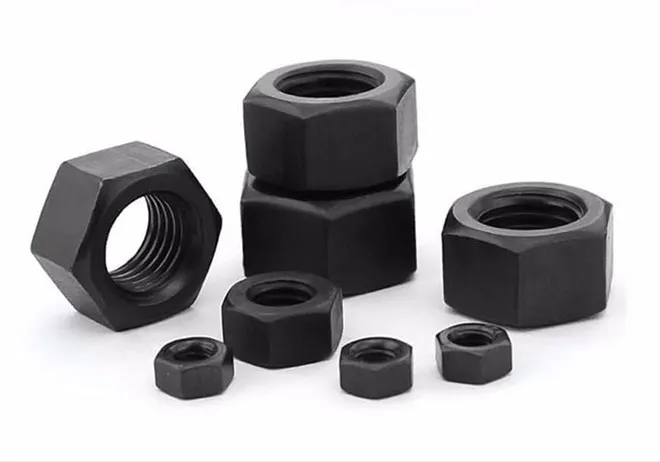Choosing the Right Washers for Your Axle Maintenance Needs
Dec . 10, 2024 23:22 Back to list
Choosing the Right Washers for Your Axle Maintenance Needs
Understanding Axle Washers Their Importance, Types, and Applications
Axle washers, though often overlooked components in mechanical engineering and automotive design, play a critical role in ensuring the integrity and functionality of various machinery and vehicles. These small yet significant parts are primarily used to distribute load, reduce friction, and protect surfaces in axle assemblies. In this article, we will explore the importance, types, and applications of axle washers in depth.
The Importance of Axle Washers
Axle washers serve multiple purposes that are vital for the smooth operation of any vehicle or machinery. First and foremost, they help to distribute the load across a wider area, reducing the stress on the axle and preventing potential failure. This load distribution is essential, especially in heavy vehicles like trucks and buses, where massive forces are exerted during operation.
Secondly, axle washers reduce friction between moving parts, which can lead to excessive wear and tear. The presence of washers minimizes direct metal-to-metal contact, thereby extending the life of components and maintaining optimal performance levels. Additionally, washers serve as spacers, ensuring adequate clearance and alignment between various axle components, which is critical for safe operation.
Finally, axle washers can act as protective barriers that prevent contaminants such as dirt, dust, and moisture from entering sensitive areas of the axle assembly. This protection is crucial in outdoor or harsh environments, where machinery and vehicles are exposed to extreme conditions.
Types of Axle Washers
Axle washers come in various designs and materials, tailored to fit specific applications
. The most common types include1. Flat Washers The simplest and most widely used, flat washers provide a smooth surface for load distribution. They are made from materials such as steel, stainless steel, or plastic, depending on the required strength and resistance to corrosion.
2. Lock Washers These washers are designed to prevent loosening in bolted connections due to vibration and movement. Lock washers come in various shapes, including split, toothed, and external, each designed to grip the bolt or nut and maintain tension.
axle washers

3. Fender Washers Larger than standard flat washers, fender washers provide an increased surface area for distributing the load. They are especially useful in applications where the surface is weak or prone to deformation.
4. Belleville Washers This type of washer, also known as disc springs, can exert a constant load over a range of deflections. They are often used in applications requiring precise tension adjustments.
5. Washer Assemblies In some complex applications, multiple washers may be combined into an assembly to provide enhanced functionality, such as vibration damping or increased load distribution.
Applications of Axle Washers
The applications of axle washers are vast and varied. In the automotive industry, they are used in vehicles ranging from passenger cars to heavy-duty trucks, playing a critical role in axle assemblies. In addition to automobiles, axle washers are also essential in machinery such as agricultural equipment, construction vehicles, and industrial machines.
Moreover, axle washers are finding increased use in the aerospace sector, where precision and reliability are paramount. The lightweight material options available for washers, such as titanium and advanced polymers, help meet stringent performance and weight requirements in aircraft design.
In railway systems, axle washers are essential for maintaining the integrity of wheel and axle assemblies, ensuring smooth and safe operations. Their role also extends to electric motors and pumps, where they help manage loads and reduce friction in drive axles.
Conclusion
In summary, while axle washers may be small in size, their impact on the functionality and durability of machinery and vehicles is profound. From load distribution and friction reduction to protective measures against contaminants, these components are essential in numerous applications across various industries. Understanding the different types of axle washers and their applications can lead to better design choices and improved performance in mechanical engineering. As technology continues to advance, the evolution of axle washer designs will certainly pave the way for even more innovative solutions in the future.
Latest news
-
Reliable Wire Bolts Suppliers | Quality Zinc Plated Fasteners
NewsAug.26,2025
-
Wire Bolts Suppliers: Durable & Reliable Fasteners for Every Project
NewsAug.25,2025
-
Premium Cabinet Bolts Supplier | Wholesale & Custom Solutions
NewsAug.24,2025
-
Reliable Axle Nuts Supplier | Quality & Precision Fasteners
NewsAug.23,2025
-
Durable Bolts for Lawn Mower Handle - Top Supplier & Manufacturer
NewsAug.22,2025
-
High-Quality Bolts for Lawn Mower Handle Supplier & Manufacturer
NewsAug.21,2025
